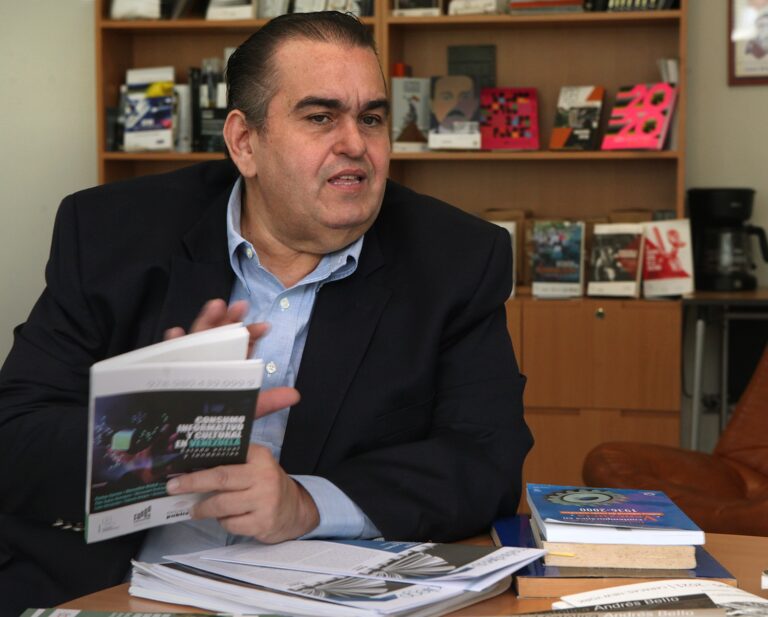(IAPA/IFEX) – The following is a 13 August 2004 IAPA press release: IAPA rejects harassment of private Venezuelan television stations Miami (August 13, 2004) – The Inter American Press Association (IAPA) expressed its concern and described inspections conducted on 13 August by government communications officials at four private television stations as blatant acts of intimidation […]
(IAPA/IFEX) – The following is a 13 August 2004 IAPA press release:
IAPA rejects harassment of private Venezuelan television stations
Miami (August 13, 2004) – The Inter American Press Association (IAPA) expressed its concern and described inspections conducted on 13 August by government communications officials at four private television stations as blatant acts of intimidation only two days before a presidential recall referendum.
The television stations Globovisión, Venevisión, Televen and Radio Caracas Televisión received unexpected visits by officials from the National Telecommunications Commission (CONATEL). The officials cited routine technical inspections, which in the past have been used to confiscate station equipment and hamper program broadcasting, as the reason for their visit.
The chairman of the IAPA’s Committee on Freedom of the Press and Information, Rafael Molina, stated, “It is suspicious that this inspection occurred on the eve of the recall referendum, and on the same day that representatives of media outlets, including those run by the government, came to an agreement with the National Electoral Council to respect communications rules and maintain balanced reporting.”
Molina, from El Nacional newspaper in the Dominican Republic, added, “This action is very negative and infringes upon the transparency of the process that will take place this Sunday.”
After rejecting what he called an “intimidation tactic”, Molina reiterated a request made by a recent IAPA delegation to Venezuela. In meetings with authorities the IAPA representatives asked “for safeguards so that during the referendum the media and journalists can do their jobs freely, without restrictions, in a respectful and safe environment, and above all, without any kind of pressure.”


